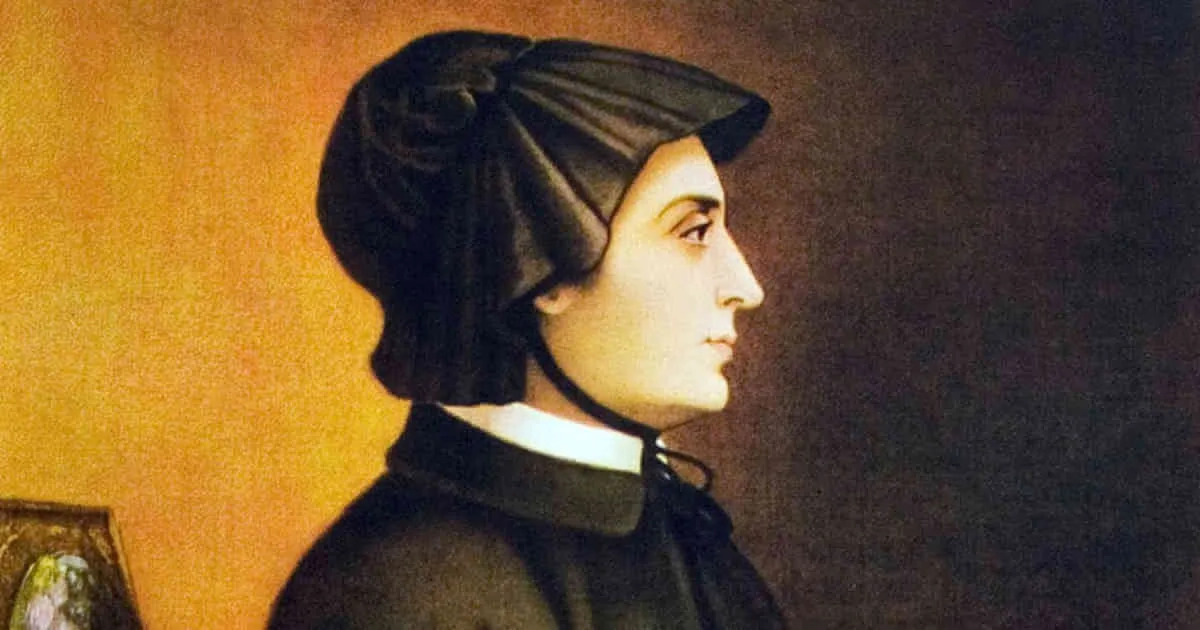
Elizabeth Ann Seton, a name that resonates with history and faith, holds a special place in American religious history. Who was Elizabeth Ann Seton? She was the first native-born American to be canonized by the Roman Catholic Church. Born in 1774, she founded the first Catholic girls' school in the United States and the Sisters of Charity, a religious community dedicated to education and charity. Her life was marked by profound faith, resilience, and a commitment to helping others. From her conversion to Catholicism to her tireless work in education, Seton's legacy continues to inspire many. Let's dive into 15 intriguing facts about this remarkable woman.
Early Life and Background
Elizabeth Ann Seton, a significant figure in American history, led a life full of remarkable achievements and contributions. Let's explore some fascinating facts about her early years.
-
Born on August 28, 1774, in New York City, Elizabeth Ann Bayley was the second child of a prominent family.
-
Her father, Dr. Richard Bayley, was a well-known physician and the first professor of anatomy at Columbia College.
-
Elizabeth's mother, Catherine Charlton Bayley, passed away when Elizabeth was just three years old, leaving her father to raise her and her siblings.
-
Despite the challenges, Elizabeth received a solid education, which was uncommon for women at the time.
Marriage and Family Life
Elizabeth's personal life was marked by both joy and sorrow. Her marriage and family experiences shaped her future endeavors.
-
In 1794, Elizabeth married William Magee Seton, a wealthy businessman, and together they had five children.
-
The Seton family faced financial difficulties after William's business collapsed, leading to their relocation to Italy in hopes of improving his health.
-
Tragically, William died of tuberculosis in 1803, leaving Elizabeth a widow with five young children to care for.
Conversion to Catholicism
Elizabeth's spiritual journey took a significant turn after her husband's death, leading to her conversion to Catholicism.
-
While in Italy, Elizabeth was deeply moved by the Catholic faith and the kindness of the Filicchi family, who took her in after her husband's death.
-
In 1805, Elizabeth officially converted to Catholicism, despite facing opposition from her Protestant family and friends.
-
Her conversion marked a turning point in her life, inspiring her to dedicate herself to religious and charitable work.
Founding of the Sisters of Charity
Elizabeth's commitment to her faith and helping others led to the founding of a religious community that would have a lasting impact.
-
In 1809, Elizabeth founded the Sisters of Charity of St. Joseph's, the first community for religious women in the United States.
-
The Sisters of Charity focused on education, healthcare, and social services, establishing schools, orphanages, and hospitals.
-
Elizabeth's dedication to education led to the founding of St. Joseph's Academy and Free School, the first free Catholic school for girls in the United States.
Legacy and Canonization
Elizabeth Ann Seton's legacy continues to inspire many, and her contributions have been recognized in various ways.
-
In 1975, Elizabeth Ann Seton was canonized by Pope Paul VI, becoming the first native-born American saint.
-
Her feast day is celebrated on January 4th, honoring her life and contributions to the Catholic Church and society.
Elizabeth Ann Seton's life was marked by resilience, faith, and a deep commitment to helping others. Her legacy lives on through the institutions she founded and the countless lives she touched.
Elizabeth Ann Seton's Legacy
Elizabeth Ann Seton’s impact on American history and Catholic education is undeniable. As the first native-born American saint, she broke barriers and paved the way for future generations. Her dedication to education, especially for girls, set a precedent that continues to inspire. Founding the Sisters of Charity and establishing the first free Catholic school in the U.S. were monumental achievements. Her life, marked by personal loss and unwavering faith, serves as a testament to resilience and devotion. Seton’s canonization in 1975 solidified her place in history, reminding us of the power of perseverance and faith. Her legacy lives on through the countless schools, charities, and institutions named in her honor. Elizabeth Ann Seton’s story is a powerful reminder of how one person’s dedication can leave a lasting impact on society. Her contributions continue to resonate, inspiring many to follow in her footsteps.
Was this page helpful?
Our commitment to delivering trustworthy and engaging content is at the heart of what we do. Each fact on our site is contributed by real users like you, bringing a wealth of diverse insights and information. To ensure the highest standards of accuracy and reliability, our dedicated editors meticulously review each submission. This process guarantees that the facts we share are not only fascinating but also credible. Trust in our commitment to quality and authenticity as you explore and learn with us.


